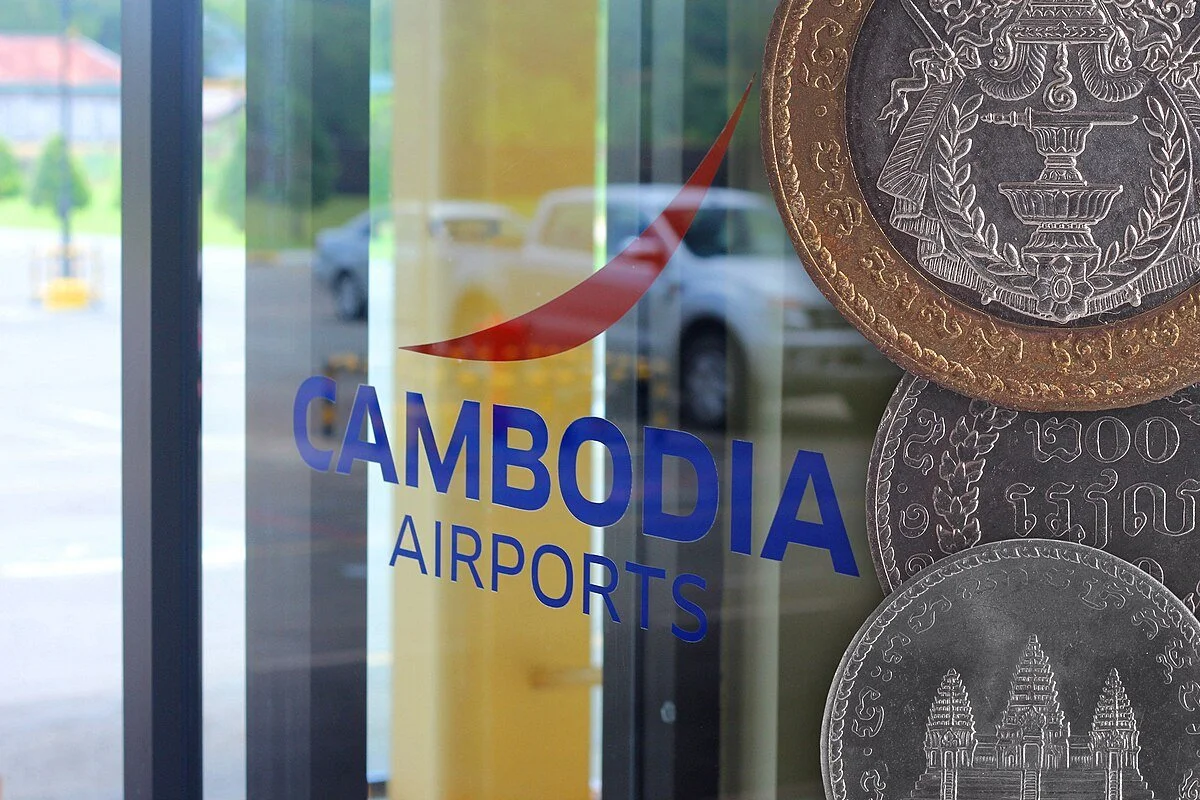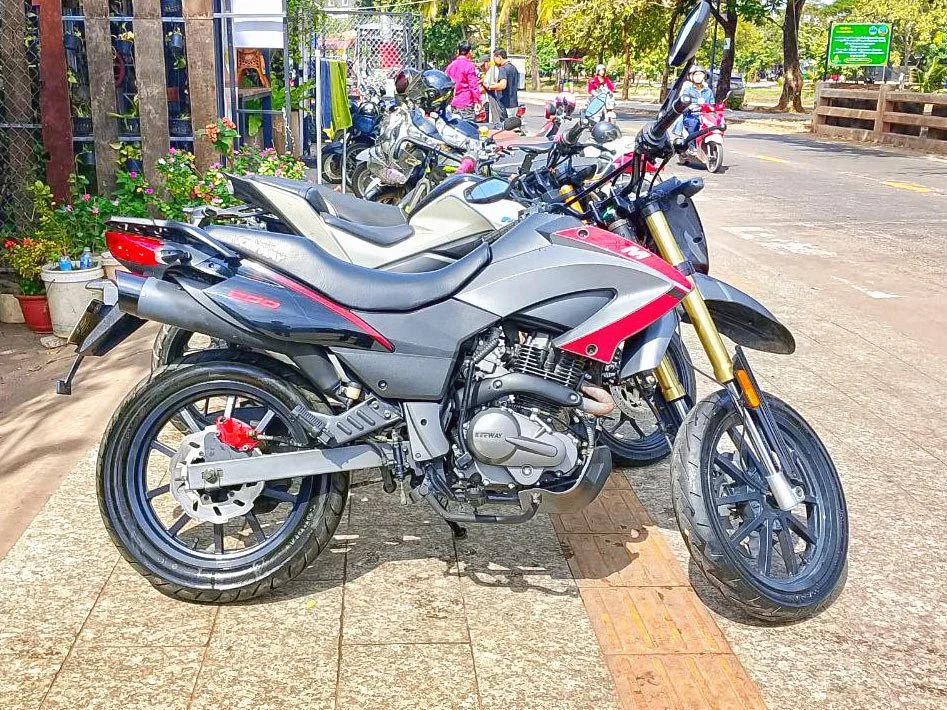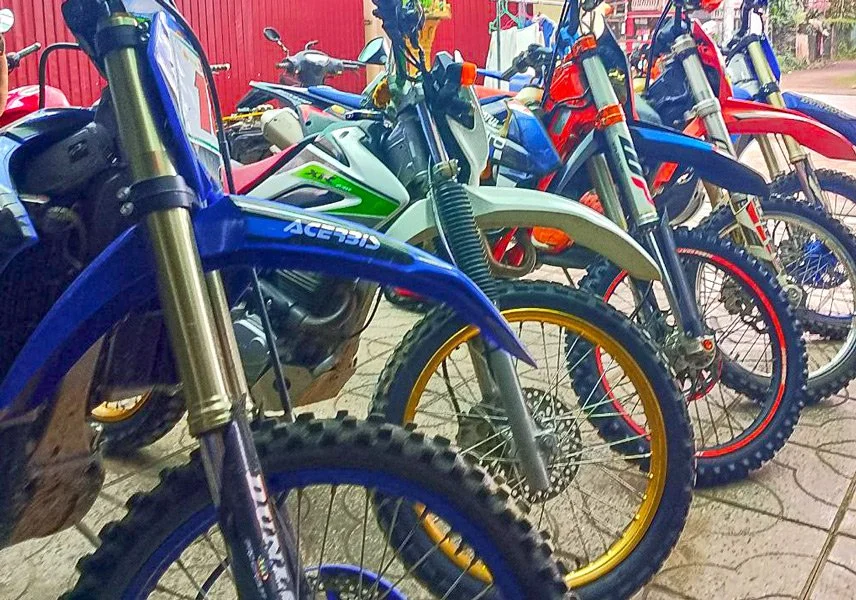Cambodia Motorbike Travel: Quick Info & Tips
🛂 Entry & Documents
Airport in Sihanoukville
Visa: 30-day tourist visa (e-visa or Visa on Arrival). The passport must be valid for at least six months. Read more about e_visa and e-arrival card here.
Driving license: Required for motorcycles >125 cc.
A foreign license must be accompanied by an IDP 1949. For foreigners planning to stay, read about the Cambodian license system here.
Scooters ≤ 125 cc: No license is generally required for tourists, but check insurance requirements.
Insurance: Optional for rentals, but travel insurance covering motorbike riding is strongly recommended. Most policies only cover accidents if you hold a valid license for the engine size you are riding. Read the fine print.
Police checks: Fines apply if no valid license/IDP is presented, or if you ride improperly: ignoring signs or traffic lights, or riding without a helmet, registration plate, or mirrors.
Keep your Passport photocopy, IDP, home license, and rental agreement with you at all times (originals in a safe place).
Keeway TXM200 for rent in Siem Reap
🏍 Renting a Motorbike
Can foreigners rent motorbikes in Cambodia?
Yes. In tourist hubs (Phnom Penh, Siem Reap, Kampot, Battambang, Sihanoukville), you’ll find some rental shops. You can rent with Mototom here.
What does it cost to rent a motorbike?
Small scooter (110–125 cc): 6–12 USD per day
Semi-automatic (Honda Cub, Wave, etc.): 6–12 USD per day
Dirt bike or 250cc road motorbikes (XR250, CRF250, FTR223, etc.): 16–30 USD per day
Bigger bikes (300-400 cc+): 30–55 USD per day
Premium motorbikes (450cc and over): $60 to $150
Typical price sample for motorbike rentals in Cambodia
🌍 Best Rental Locations & Routes
Enduro/dirtbikes in Battambang
Phnom Penh: All bike types, big selection.
Siem Reap: Many scooters, some dirt bikes, and 250 motorbikes.
Kampot/Kep: Small bikes, popular with backpackers.
Battambang: Semi-automatic or automatic.
Sihanoukville: Fewer reliable rentals now.
Popular routes:
Phnom Penh → Kampot/Kep (~3h, smooth)
Phnom Penh → Siem Reap (~6h, busy)
Siem Reap → Stung Treng (From the temples to the Northern border and the Mekong River)
Kampot → Bokor Mountain (scenic, twisty)
Mondulkiri & Ratanakiri (dirt roads, adventure rides, tribes, waterfalls and elephants)
Koh Kong → Battambang (from the coast to the countryside through the mountain)
For the best selection of big bikes and off-road machines, check out Mototom Cambodia Rental.
Get inspired or join a tour visiting Mototom's popular tours.
Roads: Major highways are paved; rural/mountain roads are beautiful but mostly dirt, and some trails can be rough. Worst during the rainy season.
Fuel: Readily available everywhere. Use pumps (Tela, Caltex, TotalEnergies, PPC, Sokimex); avoid bottles, which often contain dirt or kerosene.
🚖 Alternatives to Riding
Tuk-tuks for city trips
PassApp/Grab (ride-hailing) in Phnom Penh, Siem Reap, Kampot
Buses/minivans for intercity travel
Limited trains (e.g., Phnom Penh–Sihanoukville)
Private car with driver for day trips
Safety is your road to happiness. Ride smart! (Yamaha tricker 250 limited edition).
✅ Motorbike Safety & Tips
Do:
Wear a helmet and long sleeves/pants as a minimum.
Check brakes/lights/tires/chain tension and lubrication
On fast, long trips out of town: wear gloves and other protections if any
Take photos of the bike at pickup for reference
Carry IDP 1949 for bikes >125 cc
Fill up with fuel before leaving towns (recommended stations: Tela, Caltex, TotalEnergies, PPC, Sokimex)
Don’t:
Do NOT attempt to cross international borders. Crossing borders legally requires special documentation and is usually impossible with a rental bike. You will be turned away.
NEVER ride outside of city limits at night. This is extremely dangerous. Cambodia's roads are often dark, unlit, and full of unpredictable hazards (unmarked obstacles, slow-moving vehicles, pedestrians, and animals). Scooter headlights are typically weak for rural areas.
Do NOT leave your bike and valuables unattended. Always use the steering lock and a chain/disk lock if provided. Never leave your phone, wallet, or helmet unsecured, especially in isolated or high-traffic areas.
Do NOT assume all roads are paved. While major highways are good, secondary and rural roads can quickly turn to rough dirt, gravel, or deeply rutted paths, especially during the wet season. Always check your route on a map and proceed with caution.





